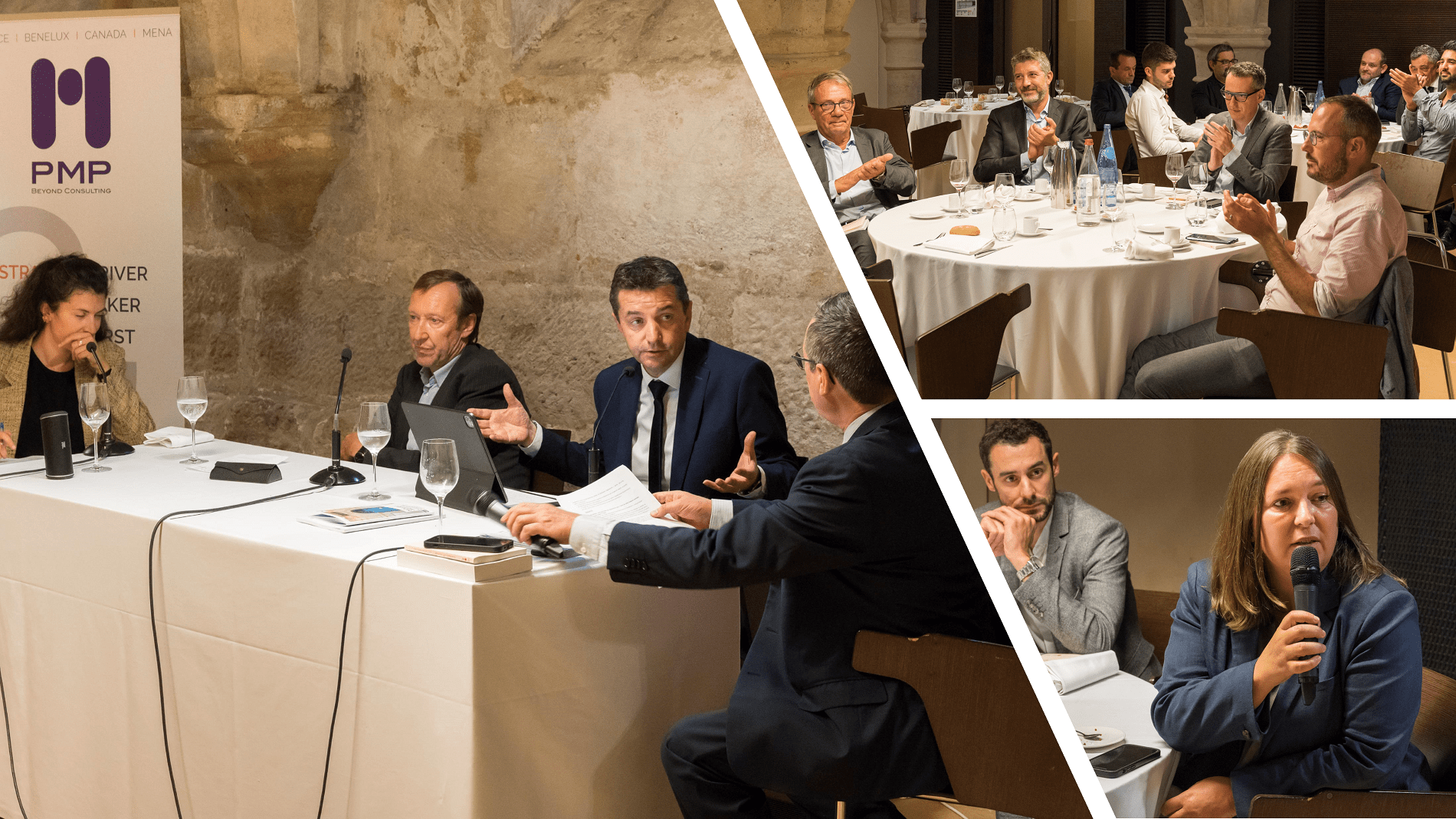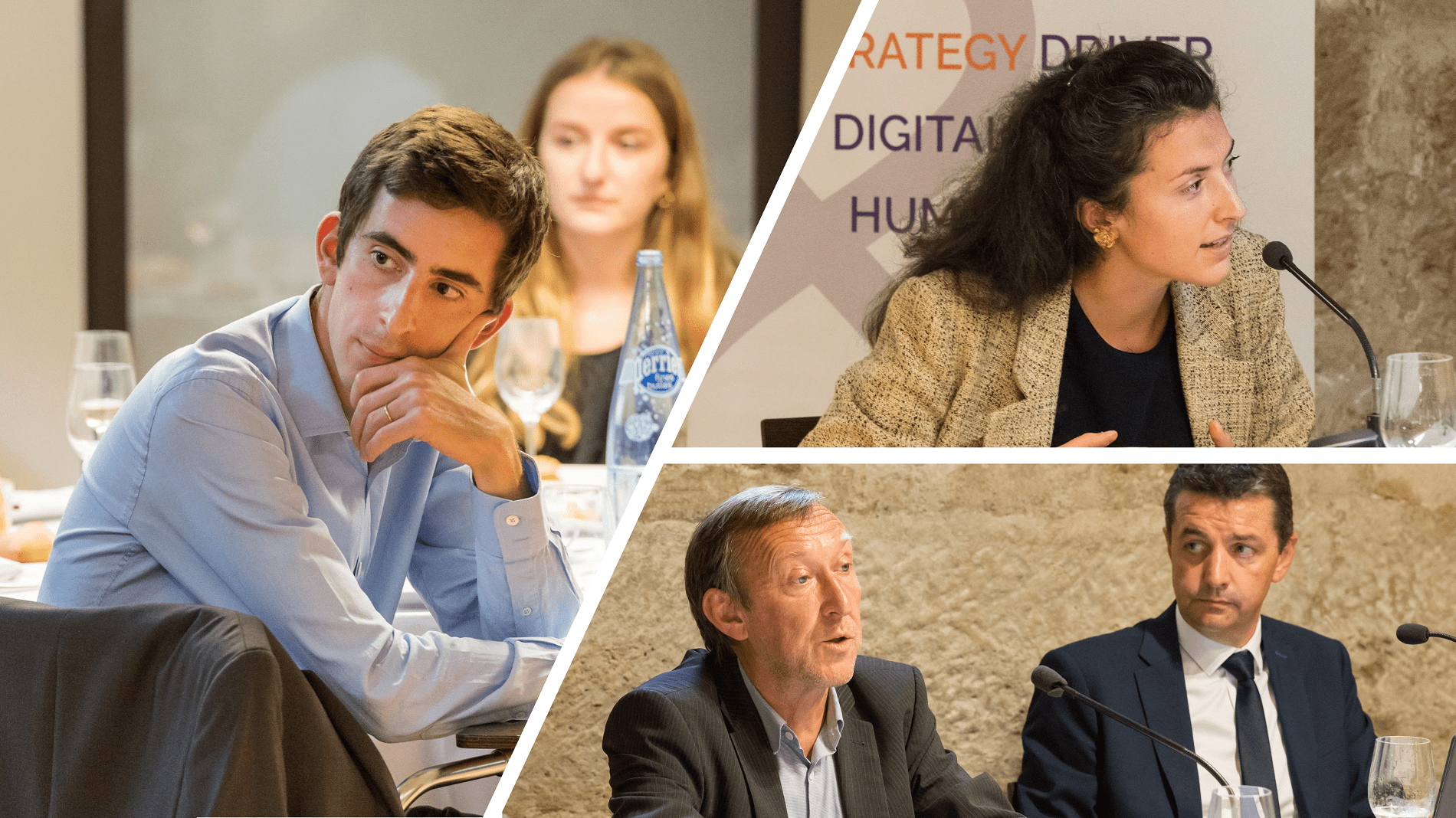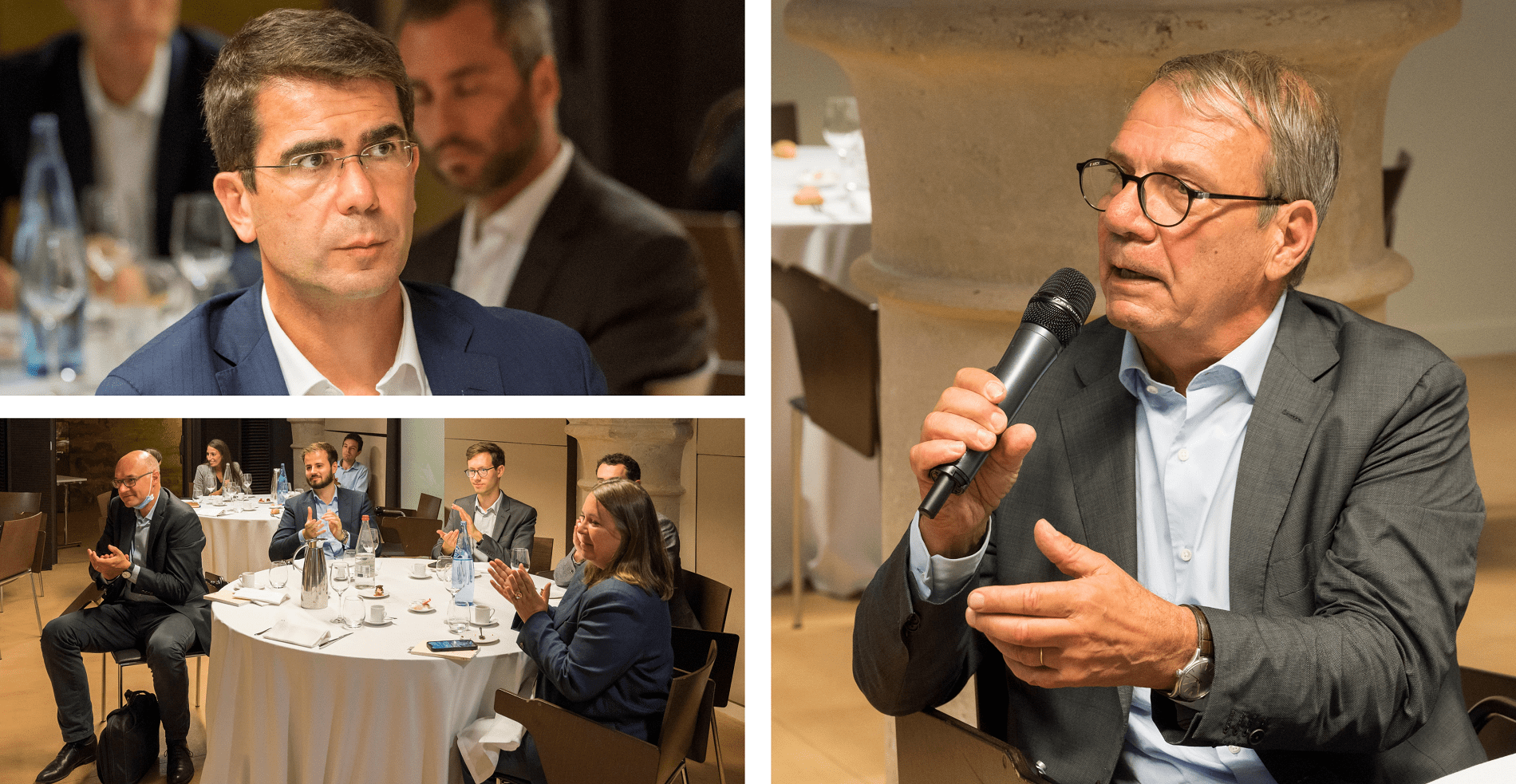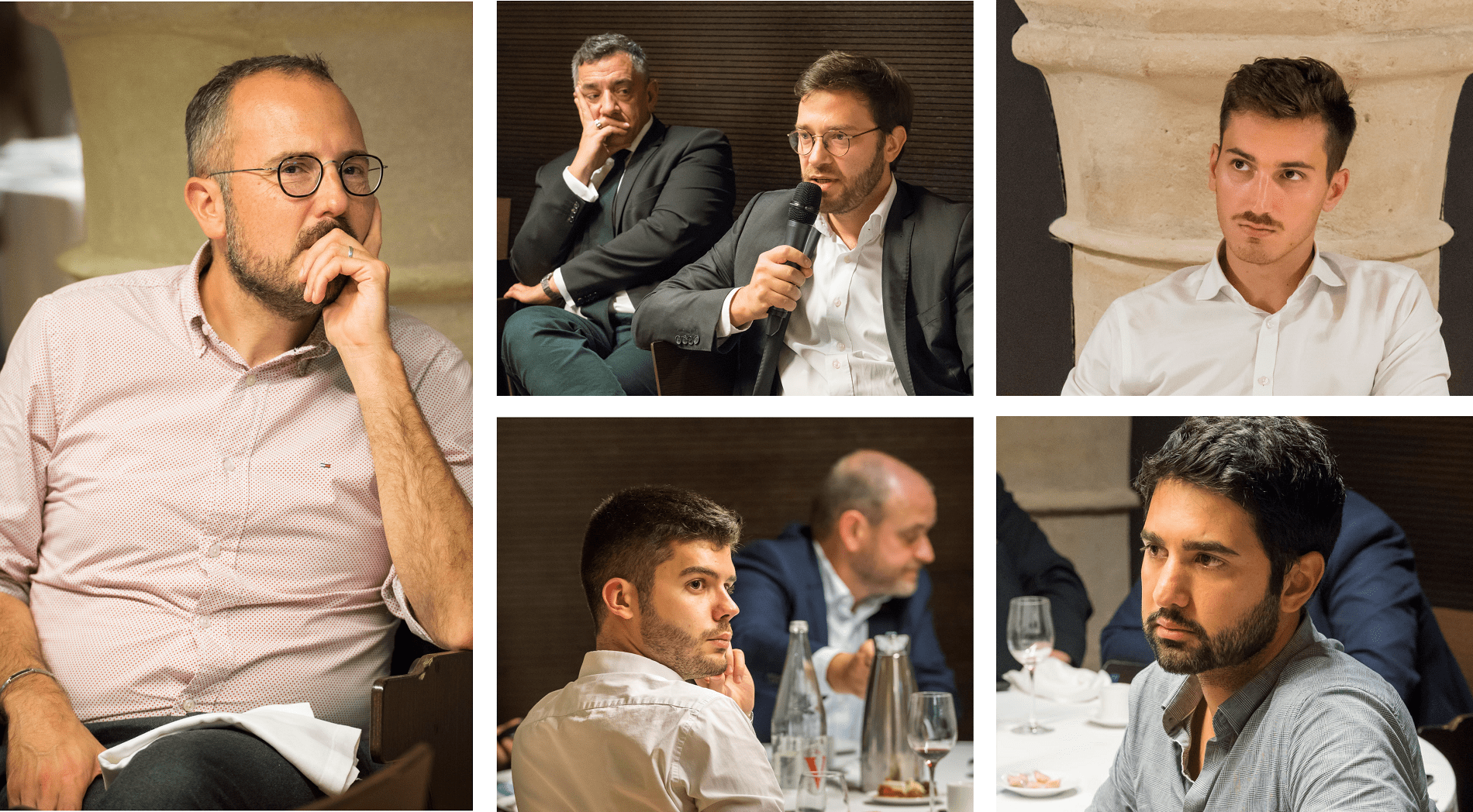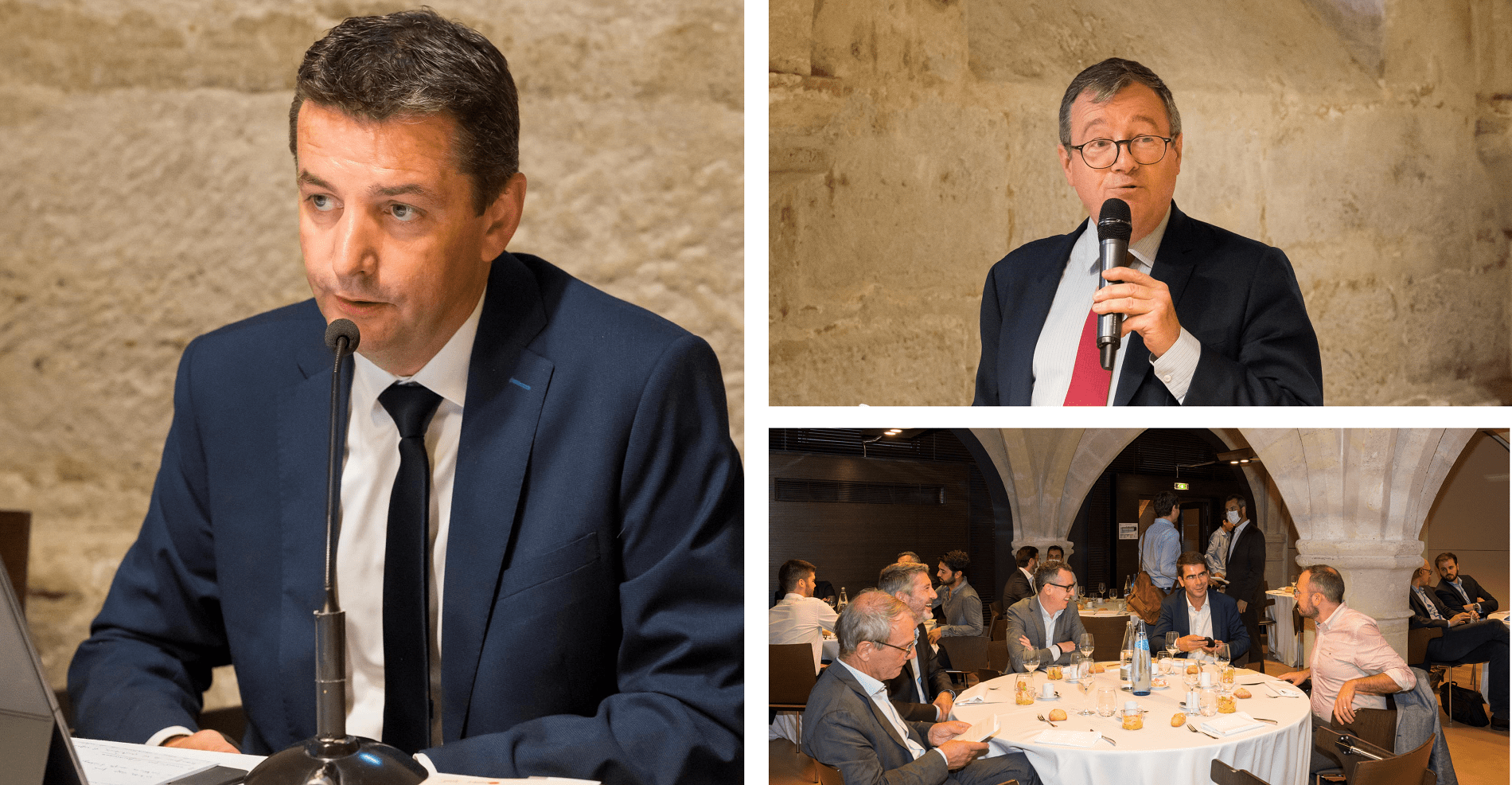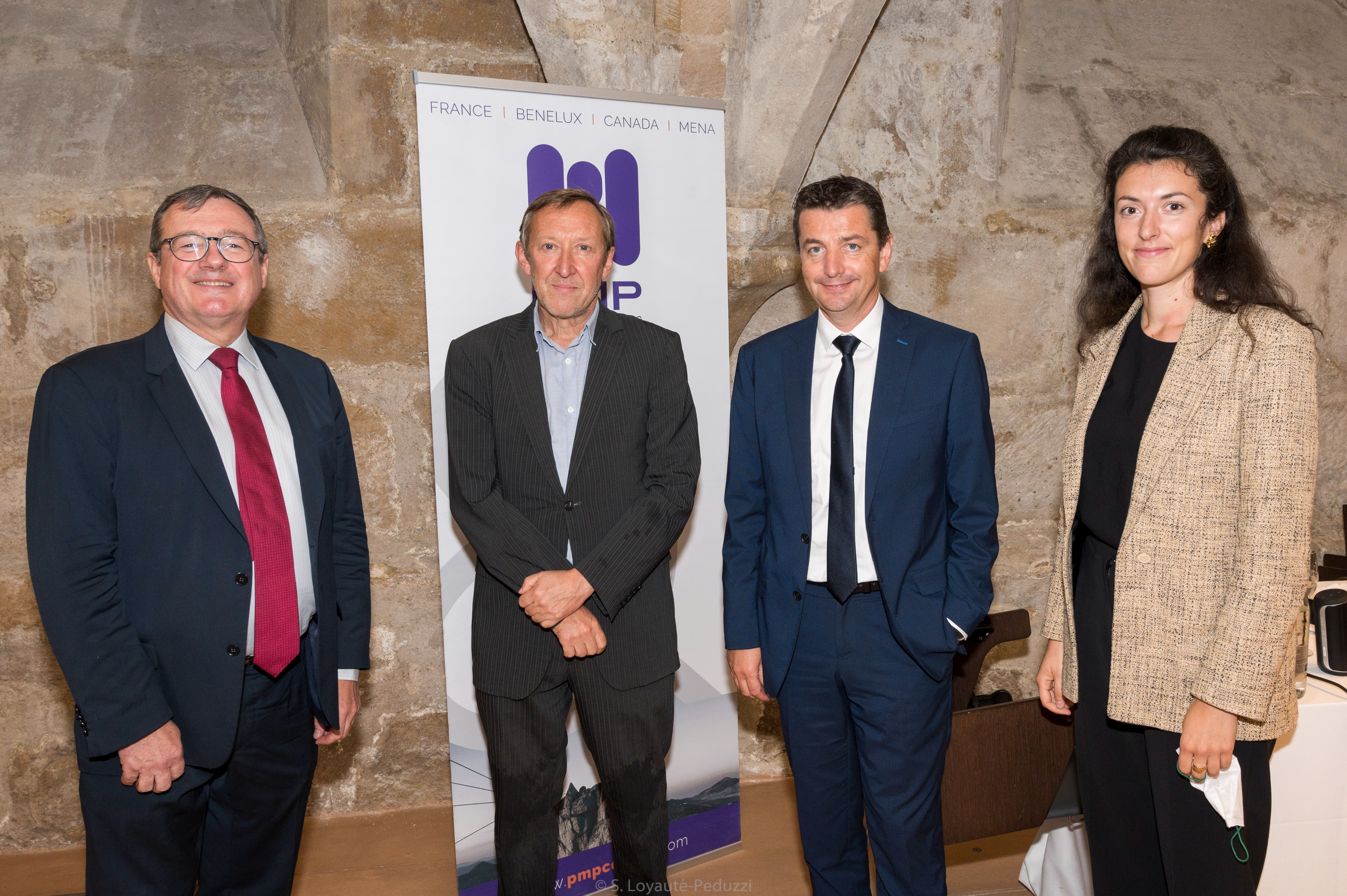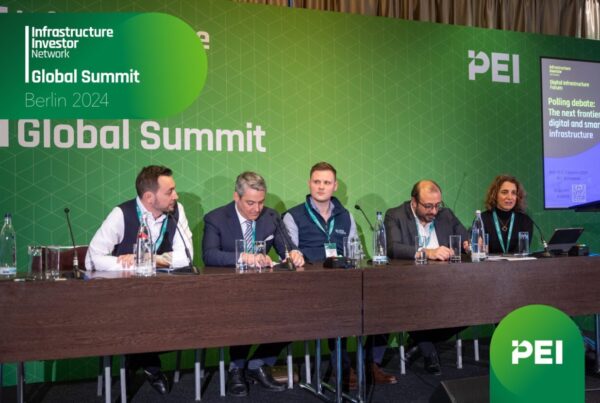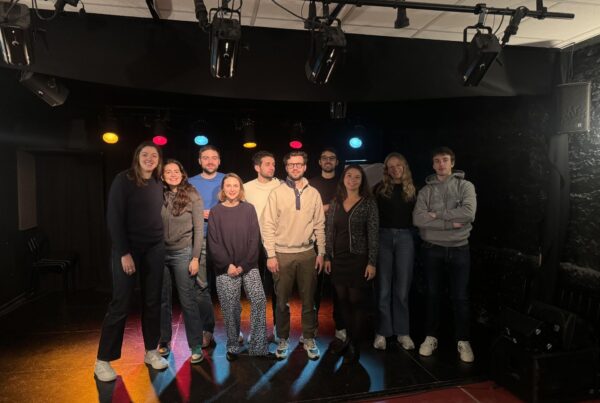As part of its cycle of managerial innovation conferences, PMP organized a lunch – conference on Wednesday September 15, 2021 on the subject: ” Transforming the city and the territories: the experience of Saint-Etienne “
We can’t equate a community with a company.
But when Gaël Perdriau, Mayor of Saint Etienne, is asked if he is a manager, he answers: “Of course, because I also manage men and women to make the projects of the City Hall succeed”.
Saint-Etienne is a good example of the transformation of a city. After having experienced a period of prosperity by participating in the first industrial revolution of the 19th century, with its steel, coal and textile industries, it experienced the crises of the 1970s. The transformation of these last years is all the more impressive, as Gaël Perdriau, in the City Hall since 1995, elected Mayor in 2014 and re-elected in 2020, likes to remind us. The city now has a network of SMEs and SMIs that make it dynamic, and a university and higher education center that attracts young people (the challenge is to be able to keep them on the territory).
But who ultimately transforms the city? The Mayor, who is elected for a short-term mandate of six years, or the civil servants of the territorial administration who, for their part, stay to make a long-term career, at least for the most part.
Gaël Perdriau claims to have been elected with a long-term vision, which necessarily exceeds the short-term mandate, given the transformation projects that cannot be conceived in the short term (development of real estate, new infrastructures, tramway lines, new university campus). The six-year mandate is a “road map” in this vision. Hence the interest in doing several terms to achieve this vision. And indeed, it is necessary to deal with the officials of the current administration, acting also through the Mayor’s office which acts as a link.
Patrick Le Galès, as a good teacher, reminded us that this principle of independent civil servants, representing the “civil service”, is a typically French creation intended to prevent the mayor from placing a network of “friends” in the posts, with risks of corruption. This can create tensions between elected politicians who have a project and senior civil servants. This is where the Mayor’s management skills find their best application.
Gaël Perdriau confessed to us that he likes authority, and wants to make sure that his project is well executed, because he is convinced that the citizens, if something goes wrong, will find only one person responsible, the Mayor. This is why he feels he is in control of the decisions, and to activate the stakeholders, internal and external, for their execution. He does not like soft consensus and participatory sessions that do not lead to anything. It’s said!
We also talked about digital. It is a tool to facilitate and accompany projects, but not an objective of general governance or citizen surveillance. Patrick Le Galès reminded us that the “Smart City” visions carried by Cisco and IBM in the 2000s, with projects for a universal tool to pilot the city, both energy and transport or water, were not as successful as hoped, and have been abandoned since 2017 – 18.
Long-term vision, roadmap, authority, pragmatism, without being a slave to digital: these are principles that could be retained for other managers.
Thank you Gaël Perdriau and Patrick Le Galès: Yes, we can also learn from the management of a City.
Gilles Martin
